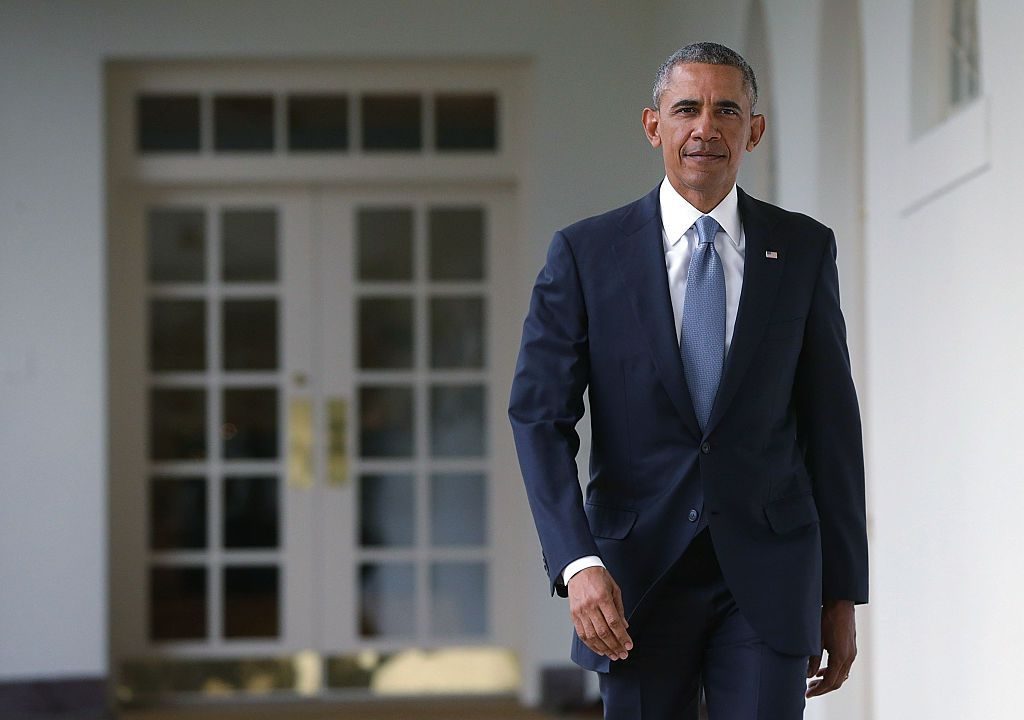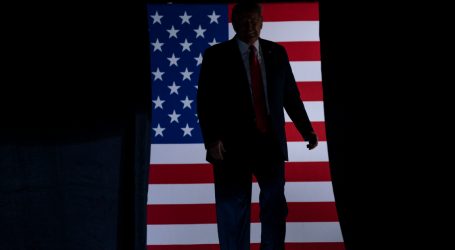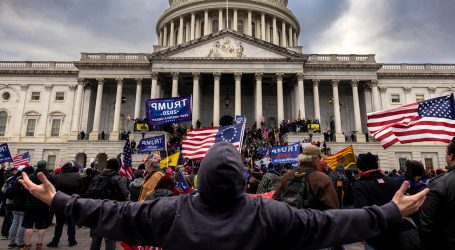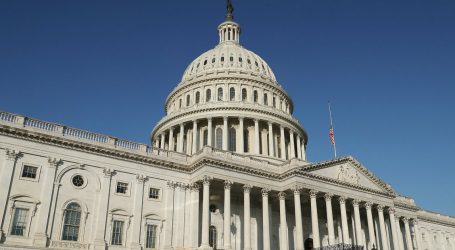‘Our children can become president, too’: Obama’s presidency was a dream realized
Friday marks the end of an historic and improbable presidency of Barack Hussein Obama, the first black president of the United States.
In his 2008 victory speech, President Obama emphasized a message of hope and said that “change had come to America.” His presidency marked what some believed was a milestone in race relations and the ushering in of a “postracial” country.
For African-Americans, President Obama was a powerful symbol of what African-Americans could achieve in a country stained by a history of anti-black racism and oppression. So, what was the psychological impact of Barack Obama’s presidency on black America?
As an African-American professor of psychology and Black Studies and a scholar on racial identity, I am particularly interested in this question. The election of Obama as president was an indicator for some African-Americans that racism against blacks was finally decreasing. Black people became much more optimistic about the ‘American dream.’
His identity as a biracial man was linked to adolescents changing their racial/ethnic identification from white or mixed-race to black or mixed-race. Among African-American college students, there was evidence of more racial identity exploration and an increase in the positive views they believed the public held regarding black people. Simply put, there was an increase in black optimism and black pride.
Given the negative stereotypes about black intelligence and lower academic achievement, psychologists wondered if having a positive black role model would have an effect on black students’ academic performance. Here, the results are mixed. One study of academic performance found that when black participants did not watch Obama’s acceptance speech, white participants significantly outperformed black participants on a verbal exam.
However, when black participants did watch Obama’s acceptance speech, there was no significant difference in black and white performance. While studies like this one prompted educators and scholars to assert that Obama’s election would inspire black students to higher academic achievement, other studies found no “Obama effect” on academic performance.
The social scientist in me will always be tempted to look for empirical data that “proves” the positive impact Obama’s presidency had on black people. However, I’m not sure that social science data will ever be able to totally capture the profound psychological impact President Obama’s presidency had on black people. Obama was the embodiment of black excellence, and he made us strive for excellence.
Obama opened up a world of possibilities for black people and expanded narrow notions that we are only excellent in sports and entertainment. Obama made it possible to tell black children (with a straight face) that they really can be President of the United States, or any other profession their hearts desire.
Obama disrupted the negative connotation of the word black that has always been coupled with the imagery of blackness. This is why black psychologists have always emphasized the importance of seeing positive black images for black people. Given all of the negative messages that we receive about being black, it was incredibly important to see someone that black people could relate to in the role as the most powerful person in the world. Sometimes, a picture is worth a thousand words. Remember the image of a 5-year-old black boy visiting the White House, who looked up at President Obama and asked to touch his hair, saying, “Is my hair like yours?”
Few images are more iconic and symbolic of the impact of Obama’s presidency on black children than this image. As Michelle Obama pointed out, that image was indicative of the role models that she and President Obama represented for younger generations. And while she did not explicitly mention race, there is no doubt that she was talking directly to black people.
One can’t fully appreciate what Obama meant psychologically for black folks without understanding the history of anti-black racism and its devastating psychological effects.
Throughout history, black people have endured some of the most vile and racist stereotypes of any group of people in this country. Since the founding of this country, black people have been seen as inherently inferior to whites. In some instances, prominent white leaders argued that blacks were not even human, or if they were human, then they were a lesser or different form of humanity compared to whites, something more akin to apes. Racist research in the name of “science” perpetuated notions that Black people were genetically, culturally and intellectually inferior.
This history of anti-black racism and its manifestation in slavery and Jim Crowism led many to believe that black people were being psychologically damaged and that blacks collectively had low self-esteem about being black. In the Brown vs. Board of Education case, this concern led Supreme Court Chief Justice Earl Warren to declare that “Segregation generated a feeling of inferiority as to their status in the community that may affect their hearts and minds in a way unlikely ever to be undone.”
The famous doll studies, that found black children were more likely to like white dolls and to choose them as nice over black dolls, seemed to confirm for many that black people had low self-esteem and were being psychologically damaged by racism. These findings have also been replicated in a widely circulated video produced by a high school student. Setting aside for the moment questions about the validity of the doll studies, it has nevertheless been disturbing to many black psychologists that black children under any circumstance would choose white dolls as being more desirable than black dolls.
This is the psychological context in which we should consider the significance and impact of Obama’s election and presidency for black Americans.
And for all of the positive impact that Obama’s presidency had on black people, it still could not make America the post-racial society many thought it would be after Obama’s election. While there is some evidence that extensive exposure to Obama resulted in lower levels of implicit prejudice, for the most part, racial attitudes barely changed during his presidency. Obama was disrespected in ways never previously experienced by a U.S. President.
There is compelling research to indicate that opposition to Obama’s health care reform was driven by explicit anti-black racial prejudice. One would be incredibly naïve or just plain obstinate to deny that much of the behavior toward Obama was fueled by racism.
So, what can we conclude about the psychological impact of Barack Obama’s presidency on black America? His presidency challenged enduring racial stereotypes pertaining to black intelligence, abilities, and achievement. When he spoke, we were proud. We were fiercely protective of him when he faced unrelenting racism and disrespect, even from his own people. His head was, in the words of Rudyard Kipling, “bloodied but unbowed.”
When he sang “Amazing Grace” at the funeral for South Carolina State Senator Clementa Pinckney, our eyes swelled with tears. Every time he looked lovingly at his wife and kids, he provided us a powerful and positive image of the black family and reminded us of the power of black love. He was not a perfect president, but he was our president.
The impact of his presidency will be felt for generations to come. Thank you, Mr. President.
Kevin Cokley is a professor of Educational Psychology and Black Studies and director of the Institute for Urban Policy Research and Analysis at The University of Texas at Austin.





